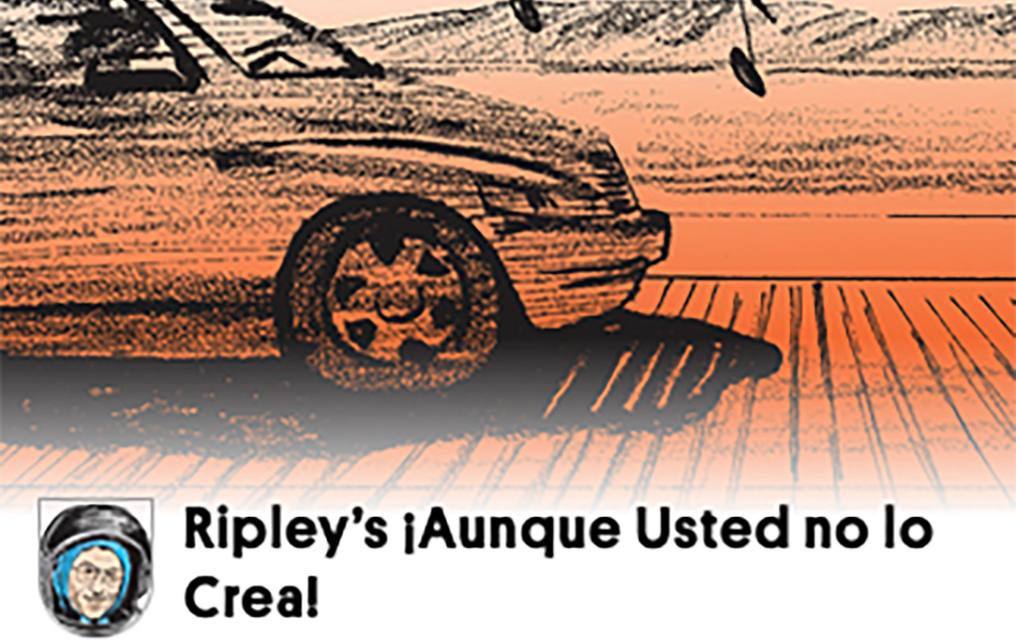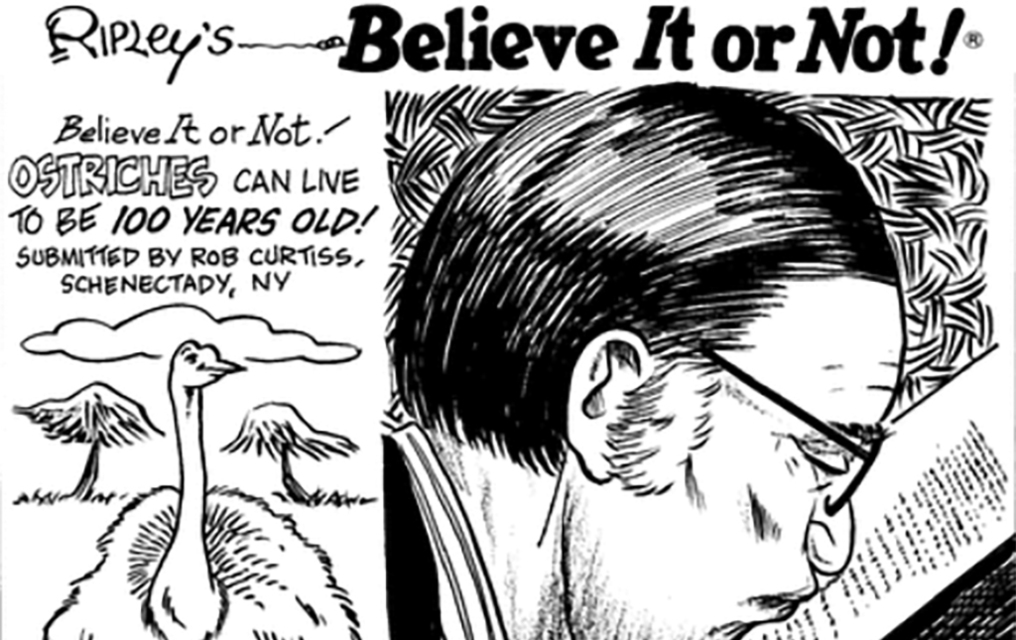Ripley's Believe It or Not by Ripley’s Believe It or Not! for September 29, 2013
Transcript:
The pygmy mole cricket of South Africa- which is the size of a grain of rice- can jump on water! Inherit the windbag! In 1908, three miners were acquitted of murder after defense lawyer Clarence Darrow gave an 11 hour closing argument at the trial! The Apollo 11 astronauts received expenses of $8 per day for the 1969 moon mission, with deductions for accommodation on board the lunar module.






Templo S.U.D. over 10 years ago
If I were the judge, jury, bailiff and all other people in the courtroom, I too would be sound asleep from boredom after hearing Darrow yak non-stop for almost half a day.
hawgowar over 10 years ago
I would have voted to hang Darrow.
Mostly Water Premium Member over 10 years ago
Cheese?
ssledge over 10 years ago
Darrow did not get Harry Orchard off. Orchard was a witness for the prosecution. Orchard spent the rest of his life in prison.
Eugeno over 10 years ago
Darrow didn’t get Orchard off. Orchard was supposed to be the prosecution’s main witness against the defendants, but, listening carefully to the contradictions in Orchard’s testimony, led Darrow to realize Orchard himself was the guilty party. That led to the acquittal of the 3 defendants, among whom was Big Bill Haywood, who Darrow grew to dislike during the trial. Orchard was subsequently tried and convicted, and spent much of the rest of his life in prison in Idaho, although under very privileged circumstances.
There are many accounts of Darrow’s closing arguments, some of which are still used in law schools to this day, as examples of logical, rational presentation and summation of a defense. Many are still in the record, including his argument in the Leopold and Loeb case in 1924 Chicago not to apply the death penalty.
Darrow did not, by the way, talk non-stop. In an era without film, tape, TV, or portable recording devices of any kind, he knew that the entire record had to be written out by hand, as well as by the dozens of reporters that usually attended his big cases – therefore – he took his time, and often repeated critical points. Other lawyers did the same thing, by the way, and for the same reasons. And – it was a time when people knew how to listen, and pay attention. They were not distracted by electronic devices of any kind – and Darrow was capable of being very entertaining in the courtroom. He was better, and more widely read than any other lawyer, most likely, even though he only attended one year of law school at Michigan. He could not afford to return to finish his law degree. But he so impressed the Dean of the law school, that he was recommended to read the law with a practicing attorney in Youngstown, who then recommended Darrow be allowed to take the bar exam, which he passed. Becoming a lawyer was a much less rigid, but no less rigorous process than it is now.
Big business, corporations, et. al., grew to fear Darrow, though they respected him. He never resorted to smear tactics, though they were used against him. It is interesting that his name still comes up, 75 years after his death. His sort of lawyer, and the principles by which he worked, would be a revelation today. Though we could use one, or several, now, there is no sign of a Darrow anywhere on the legal horizon.
finnygirl Premium Member over 10 years ago
“Pygmy mole cricket” kind of sounds like a lab experiment gone wrong! :→